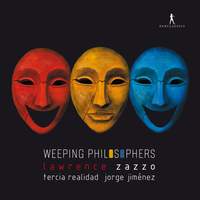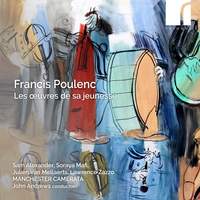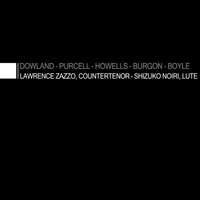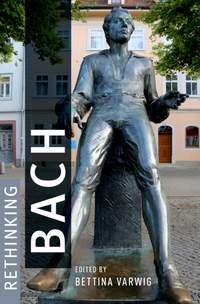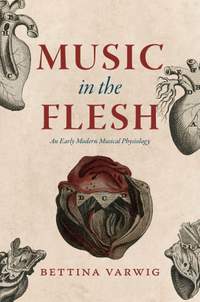Interview,
Lawrence Zazzo on Weeping Philosophers
The programme features cantatas and duetti da camera by Barbara Strozzi, Jean-Baptiste Stuck and Francesco Durante, with comic drinking-songs by Richard Leveridge and John Frederick Lampe adding a welcome note of levity (and seeming to point the way to Monty Python...)
Fresh from singing the title-role in Handel's Giulio Cesare in Frankfurt (opposite Pretty Yende in her debut as Cleopatra), Lawrence spoke to me about why philosophers proved such a fruitful source of inspiration for many seventeenth- and eighteenth-century composers, some of the extraordinary pieces he discovered in the course of researching this programme, and the interplay between brain and body in Baroque music and philosophy...
This is such an intriguing concept for an album: what led you to explore the idea of philosophers (and philosophy) in music?
All my solo albums have these kooky puns and titles that hopefully intrigue (or possibly annoy!) people; I did one called Lunarcy (exploring ideas of madness and the moon), and Byrdland is my absolute favourite because it’s a triple pun! I’ll get an idea that will burrow like a clam into the sand that is my brain: it just starts gathering more particles, and in time hopefully becomes a pearl…Like my other projects, I started this one by collecting piles of repertoire, and before you know it you have enough for an entire programme - which I like to think works thematically rather than just being a collection of puff-pieces I enjoy!
Philosophy in music is an intriguing topic, because it lends itself well to careful curation: it’s not as ubiquitous or clichéd a theme in music as ‘love’ or ‘war’ or ‘heroes’, where there’s almost too much material to choose from. But there are enough Baroque and early Classical operas on the subject of philosophy that I could easily have filled another album or two - and good scholar that I am [laughs], I’m continuing to compile a database of vocal pieces on these subjects. Telemann’s Der geduldige Socrates is probably the most well-known opera with a philosopher in its title, and there are others on Diogenes and Democritus, to name but a few.
One glaring omission on Weeping Philosophers is Seneca from Monteverdi’s L’incoronazione di Poppea, but of course that’s a bass role and, while I've certainly made a feature of transposition on this album, transposing Seneca upwards for a countertenor just didn’t feel right: I did transpose the aria from Telemann’s Socrates (also written for bass), and that worked well because of a certain halo-effect in the music. One thing I would have loved to record is that scene from Poppea where the page Valletto makes fun of Seneca, but there are only so many minutes on a CD!
Where did you start with that process of ‘careful curation’?
In the early 2000s I’d done a programme of duets by Scarlatti, Durante and Steffani with the lovely Claron McFadden, and that led me to discover these amazing solo cantatas by Durante. In a sense the one I chose for the album (depicting the suicide of Seneca) is the odd one out, in that it’s the only secular subject in a collection of Cantate Spirituale - but somehow Durante portrays the death of the character just like the martyrdom of a saint. Seneca was like a martyr for his philosophy, wasn’t he?
One of the other sparks for Weeping Philosophers was Barbara Strozzi’s L’Eraclito amoroso [‘Heraclitus in Love’], and until I started researching it I didn’t really connect 'Eraclito' with the philosopher Heraclitus. I was intrigued about why Strozzi had picked him, but then of course I found out that Heraclitus was known as ‘the weeping philosopher’ and it made sense. At the same time I learned that Democritus was known as the laughing philosopher…Laughing and crying seemed like a shoo-in to me for creating a contrasting concert-programme. Another thing that spoke to me was the idea of seeing these very cerebral, rational characters making fun of other people being in love, but then falling in love themselves and being caught out by their own emotions.
You mentioned having enough material for a sequel (or two!): what would be your priorities if that came to fruition, and were there any composers which you would have liked to include but didn’t quite fit the bill?
I discovered so much repertoire along the way; it was really a process of revelation. I’d love to record more music by Jean-Baptiste Stuck, and definitely more drinking-songs – there’s a whole tradition of French drinking-songs that involve philosophers and it would be great to explore those at some point…
I’m a Handel expert both in my academic and my singing career, and you probably notice there’s not a single piece of Handel - darn if I didn’t try to find one! The closest character to a philosopher in Handel's music is probably Zoroastro in Orlando, but he’s more of a sorcerer or magician: in the Baroque period, the word ‘philosopher’ often meant something akin to a magus, as in ‘the philosopher’s stone’.
Tell me a little about the tensions between the heart and head which you explored whilst working on the project…
I think that music in general can be a very subversive idiom which pokes fun at us being in our heads too much. Many other art-forms can be quite cerebral, and of course music can be cerebral too - but it’s often been viewed with suspicion by thinking people, because it can go directly to your heart and somehow bypass the brain. I find it very interesting that this very issue was on philosophers’ minds while they were debating the merits of music during the Baroque period, and I think these days we often misunderstand the discussions they had.
Descartes, for instance, is a philosopher who very much does not deny the emotions. We tend to think of him as ‘Mr Brain and Mr Body’, ie Cartesian dualism - but like many people in that time-period he recognised that emotions are experienced in the body: even our thoughts have a physical dimension. There are some very modern ideas in Descartes about sympathetic vibrations, which accord with, for example, Bettina Varwig's work about embodiment in Bach.
As Bettina has confirmed, there’s a misconception that Bach’s music is predominantly cerebral rather than visceral - but I’ve just been doing the St Matthew Passion...have you noticed how much crying and wailing occurs in those texts? I was talking about this to my wife recently: she’s a Latina who loves her Puccini, and she said to me that she found Bach’s music too mathematical. But if you look at the text, it’s very sentimental (in the original sense of the word): it’s not just about feelings, but about the physicalisation of feelings, and that idea was very much a part of this album too. I tried to put that across in the performances themselves, using sobs and sighs: was I too subtle with that, or did it cross a line?!
Personally, I loved it!
I tended to err on the conservative side, because the problem with our recording culture is that whatever you put down is going to be there forever. I've worked a lot with René Jacobs and some people feel that his recordings go a little too far, but you have to view recordings as an example, or a smorgasbord of what’s possible. Through my work as a lecturer at Newcastle University I’m also conscious that the next generation of performers are learning music aurally rather than via notated scores, so there’s even greater responsibility to put something out there that is I suppose 'acceptable' - but in order to show where the line of 'bon gout' is you sometimes need to cross it! In some ways I think I could have gone further, but there's a point at which any gesture becomes mannered. It was really an iterative process, a process of experimentation, of which the CD is perhaps a snapshot.
I also enjoyed that glimpse of your chest-voice in the song from Lampe’s The Dragon of Wantley…
That’s something I’ve been experimenting with more and more over the past five years or so. Rolf Riehm had written pieces for me which played with that, and just before COVID my friend Geoff Page composed a one-man opera for me based on Milton’s Paradise Lost, which involves a lot of leaps from falsetto right down into the chest-voice, a bit like in Reimann’s King Lear. We had the fortune to perform this at the 2020 Tête à Tête Festival, which was part of a project where theatres opened up in a very socially-distanced way in that terrible year. On the CD, you'll hear that I also recorded a verse of Leveridge's drinking-song with a verse in my baritone register. I was very tired and gravelly, although I think this added to the drunken effect, and my wife heard it and said ‘Who’s that? Did you have a baritone soloist?’!
Returning to the Lampe, it is actually sung by a tenor in the opera: the wonderful Mark Wilde did it on John Andrews’s recent recording. It also threw up an interesting conundrum in terms of pronunciation, as it includes the rather Monty Python-ish lines: ‘Zeno, Plato and Aristotle/All were lovers of the bottle/All admire a pretty lass /All acquire a cheerful glass!’. With my academic head on, I researched the pronunciation of those ‘-ass’ endings, and discovered that it actually changed (at least in the South of England) during the decade that the opera was written: I'd like to think that Lampe and his librettist Henry Carey were playing with the evolving pronunciation here. I chose what is now Northern/Scottish/American, with a very flat ‘a’ sound - quite different from what Mark does on John’s recording, who's Scottish but chose the English pronunciation...
What’s coming up next for you in terms of recordings?
Speaking of John Andrews, a CD has also just been released on Resonus Classics: early Poulenc. I appear briefly in an early Cocteau play with music by Poulenc called Le gendarme incompris. The Poulenc estate stipulated that we include all of the dialogue, so what we’ve recorded is essentially a radio-play. I play a Marquise who’s dressed as a priest and gets arrested for pleasuring herself/himself in the Bois de Boulogne…It’s a typical crazy Cocteau Dada-ist confection, and I had so much fun with it!
Lawrence Zazzo (countertenor), Soraya Mafi (soprano), Tercia Realidad, Jorge Jiménez
Available Formats: CD, MP3, FLAC
Soraya Mafi (soprano), Julien van Mellaerts (baritone), Lawrence Zazzo (countertenor); Manchester Camerata, John Andrews
Available Formats: CD, MP3, FLAC, Hi-Res FLAC, Hi-Res+ FLAC
Lawrence Zazzo (countertenor) & Shizuki Noiri (lute)
Available Formats: CD, MP3, FLAC
Bettina Varwig
Available Format: Book



